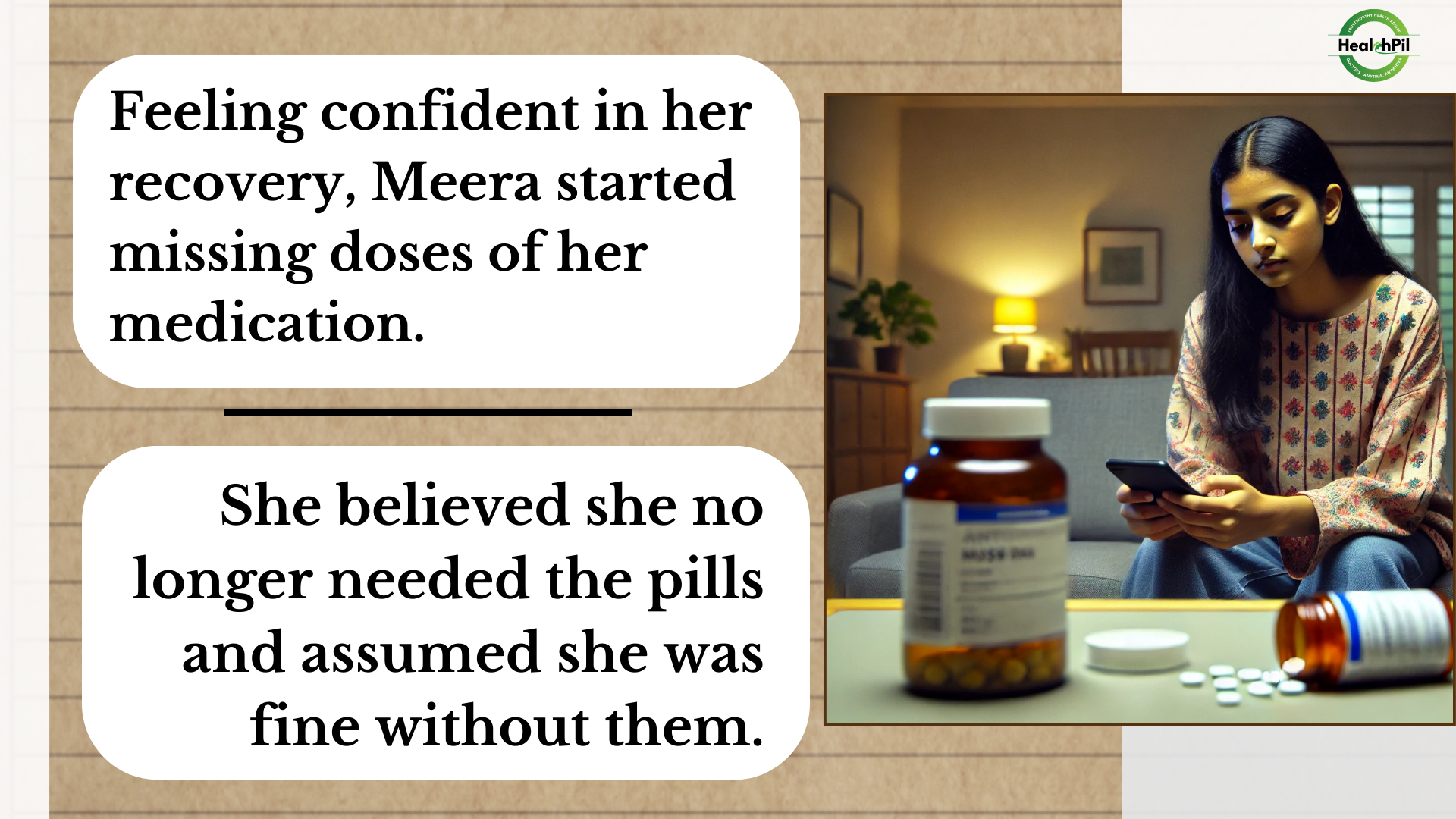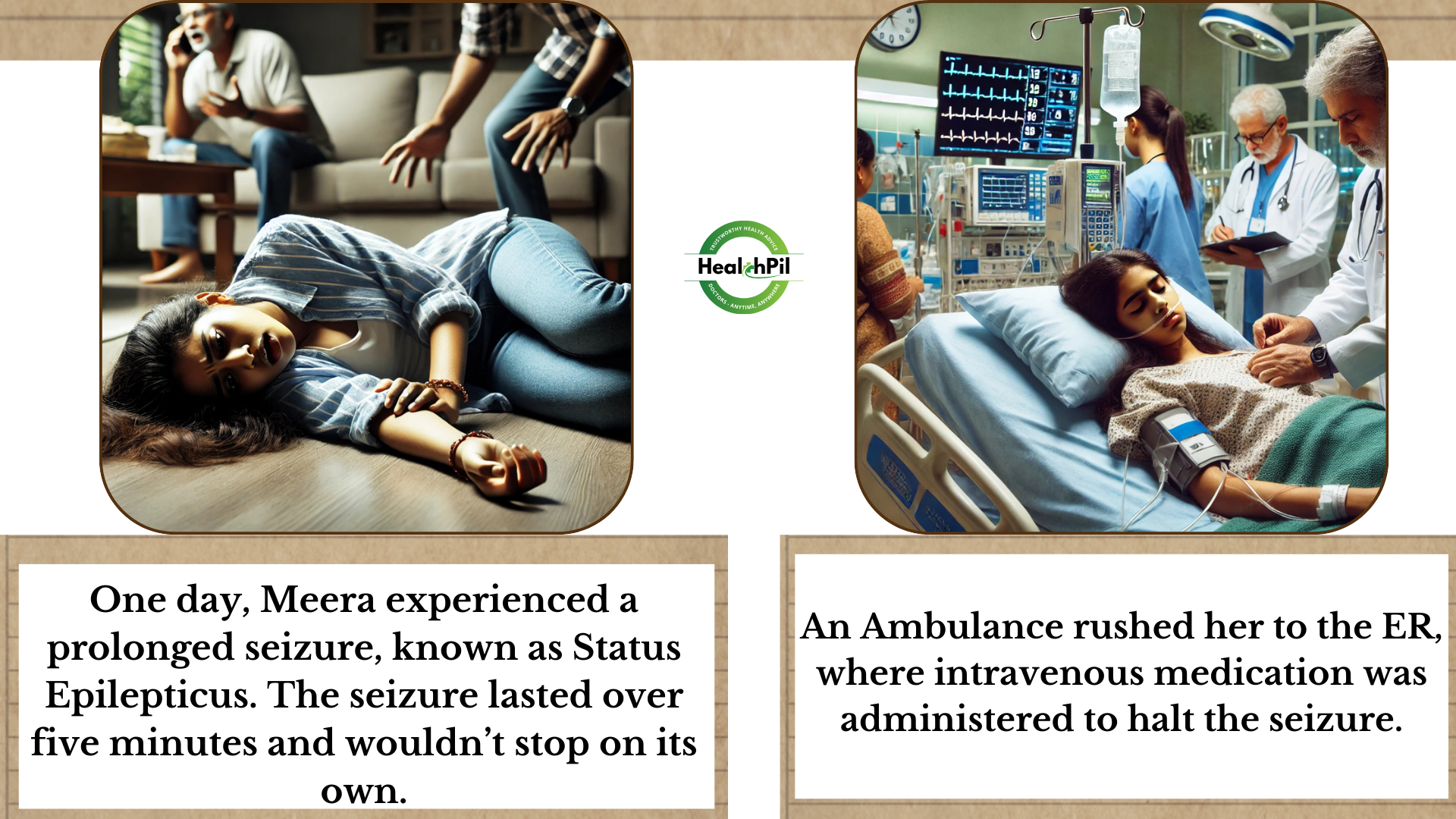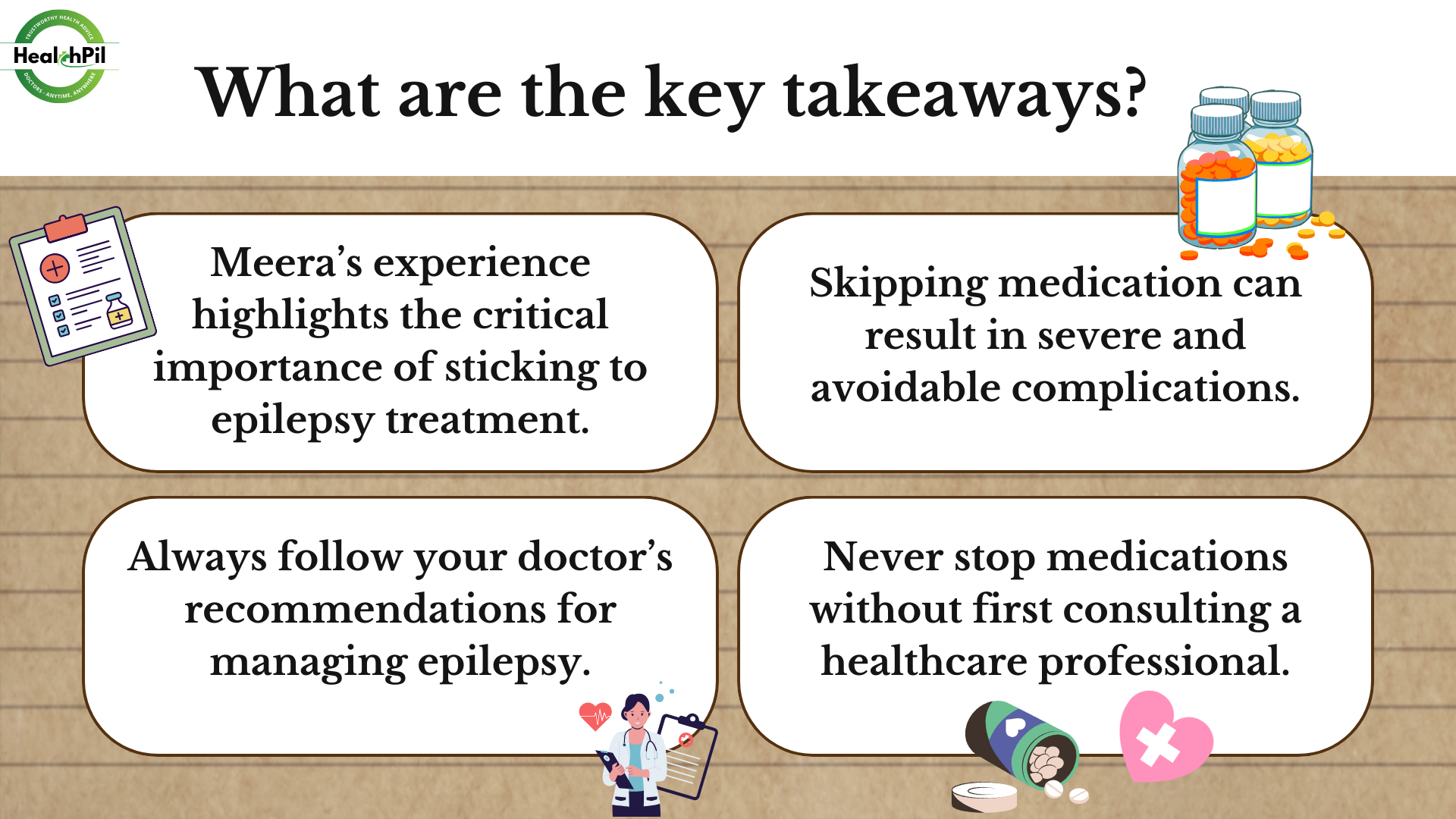






After getting diagnosed with epilepsy a patient has to take regular medications as prescribed by the physician. Strict adherence to regular antiepileptics is of utmost importance to keep seizures under check. Even when everything appears to be going well, skipping doses might have fatal consequences.
A Real Story: Skipping Epilepsy Meds Led to a Medical Emergency
Meera (name changed), an 18-year-old, was diagnosed with epilepsy two years ago. After her diagnosis, doctors prescribed antiepileptic drugs (AEDs), and her seizures were under control for months. Feeling better, Meera began missing doses, thinking she no longer needed the pills.
But missing those doses came at a cost. Meera had a prolonged seizure—known as Status Epilepticus—which lasted over five minutes. Status Epilepticus is a medical emergency, where seizures don’t stop without intervention. She was rushed to the ER and given intravenous medication to stop the seizure. Her doctors explained that if she had continued taking her meds, this terrifying experience could have been avoided.
What is Epilepsy?
Epilepsy is a disorder in the brain that causes repeated seizures. These seizures happen because of abnormal electrical activity in the brain.
Signs of Epilepsy Include:
● Sudden jerking movements (convulsions)
● Blank staring or temporary confusion
● Loss of consciousness
● Stiffening of muscles or falls
Epilepsy can be caused by genetic influence, brain injury, infection, or stroke.
The Risks of Skipping Epilepsy Meds
Meera’s experience shows the real dangers of skipping epilepsy medications. Status Epilepticus is a life-threatening event that can cause brain damage or death if it isn’t treated immediately. Consistent medication is the best way to keep seizures at bay.
Patients with epilepsy also face the risk of Sudden Unexpected Death in Epilepsy (SUDEP). While SUDEP’s causes aren’t fully understood, it’s often tied to uncontrolled seizures. Missing doses makes SUDEP more likely.
How to Stay on Top of Epilepsy Treatment
- Take Your Medications: Stick to your antiepileptic drugs (AEDs) as prescribed. Missing a dose can set off a seizure, or even a prolonged one like Status Epilepticus.
- Emergency Treatment for Status Epilepticus: If a seizure lasts too long, immediate medical care is essential. Drugs like Lorazepam or Diazepam can be given through an IV to stop the seizure. Status Epilepticus is a medical emergency and should never be ignored.
- Watch for Triggers: Things like sleep deprivation, stress, or alcohol can bring on seizures. Living a balanced, healthy lifestyle can help reduce risks but doesn’t replace the need for medication.
What Happens if Epilepsy Isn’t Managed Properly?
1. Status Epilepticus:
Long-lasting seizures can damage the brain, cause a coma, or even be fatal.
2. Injury from Seizures:
Seizures can lead to falls or accidents, especially during everyday activities like driving.
3. Sudden Unexpected Death in Epilepsy (SUDEP):
SUDEP can occur in people with uncontrolled epilepsy, particularly when medications are skipped.
How HealthPil Can Help You
If you or a loved one has epilepsy, HealthPil is here to help. Connect with our neurologists for ongoing support, ask questions, and make sure your medication plan is on track.
FAQs (Frequently Asked Questions)
What are the symptoms of epilepsy?
Common signs include convulsions, temporary confusion, or loss of consciousness.
Is epilepsy curable?
All forms of epilepsy can not be cured and the cause needs to be evaluated. While many forms of epilepsy can’t be cured, it can be controlled with medication.
What happens if I stop taking my epilepsy meds?
Skipping your medication can trigger seizures, Status Epilepticus, or even lead to SUDEP. Always follow your doctor’s orders.
Can epilepsy be fatal?
Yes, if not managed properly, epilepsy can be life-threatening.
Disclaimer:
This content is for informational purposes only and should not replace professional medical advice. Consult a healthcare provider for personalized guidance.

